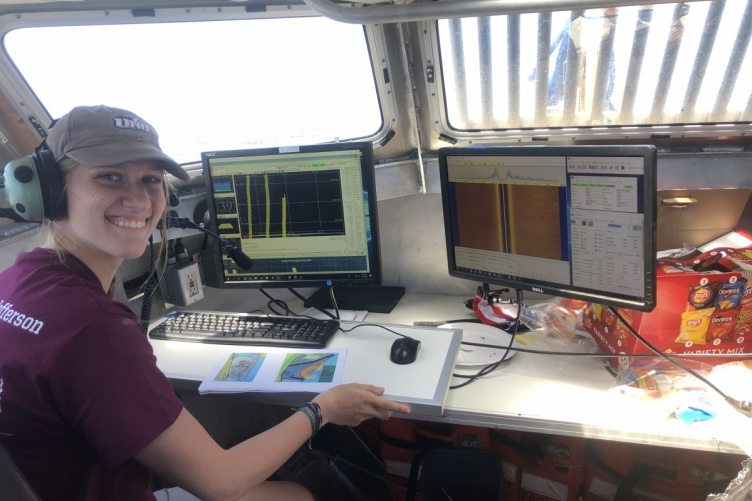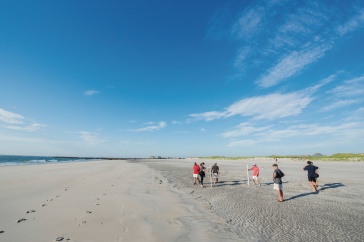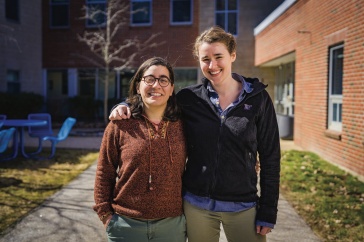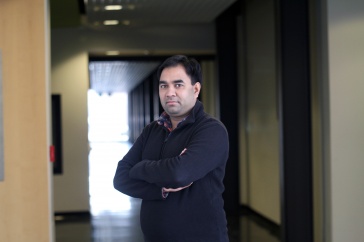
Natalie Cook '22, '23G is currently completing her accelerated master’s program in ocean engineering with a focus in ocean mapping. She started off at UNH as an ocean engineering (OE) undergraduate student, taking several classes through the advanced Center for Coastal Mapping Joint-Hydrographic Center located in the Jere A. Chase Ocean Engineering Laboratory. Throughout her undergraduate experience, she was exposed to cutting-edge science and technology. Feeling that her education at UNH has already given her an advantage, she decided to continue by pursuing her master’s degree through the accelerated master’s (AM) program. This program has already provided her with many opportunities to be at the forefront of OE research and scientific progression.
“What I love most about my program is how diverse the coursework can be. I’ve had labs on a boat in the Great Bay measuring ocean currents and I’ve spent hours in class analyzing wave data and how it contributes to coastal erosion ... I love working toward a specialized degree that I know still has lots of options for potential career paths," Cook says.
Cook has taken full advantage of the study opportunities provided to her by UNH and credits these learning experiences to the graduate community. While an undergraduate student working on her bachelor’s and master’s degrees concurrently for 12 credits, she has the benefit of studying alongside master's students while completing her bachelor’s degree, which allowed her to build her network through working on homework and team projects.
“It’s been incredibly welcoming to have so many graduate students to look up to and help guide me through my degree and to expand my network with such a diverse group of people," Cook says. "It’s amazing to be able to make new friends with people that share the same life passions and enthusiasm as I do for the ocean.”
Not only has the AM program helped Cook with building networking and professional skills, but it has also paved her transition into the graduate program. Many prospective graduate students cite fear of not being able to transition back into the “school mindset” as a hurdle when applying for graduate programs. Cook indicated that the AM program helped eliminate those fears for her, attributing the transition as a natural part of her academic journey. The accelerated master’s program waives the application fee for current UNH undergraduate students looking to apply, which alleviated one fiscal hurdle of the transition.
So, what's next?
“I hope to take my undergraduate degree and master’s degrees into the field of robotics for autonomous seafloor mapping," Cook says. "I’ve always loved nautical charts and technology and am intrigued by the potential for applying those systems for autonomous surface vehicles to do the work for us. While I don’t know exactly where I will be in the next several years after graduation, whether it’s industry or research, I hope to spend plenty of time out in the field and at sea.”
-
Written By:
Autumn Bedell '22 | Graduate School



















































